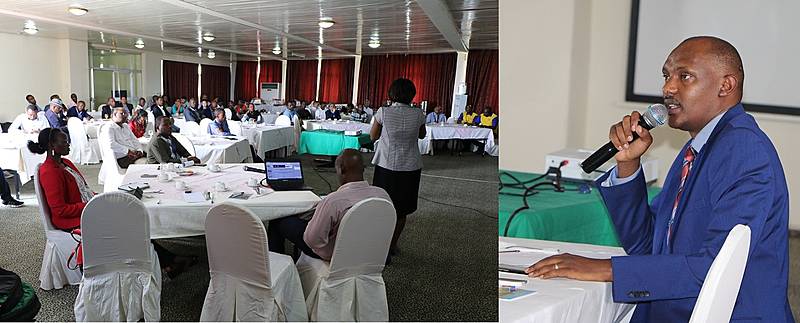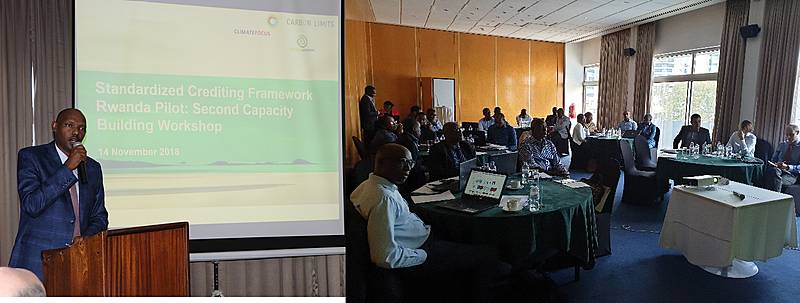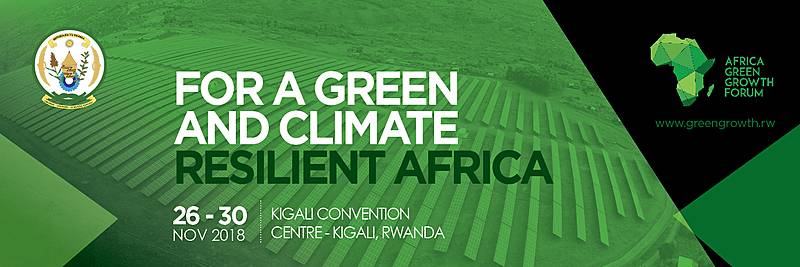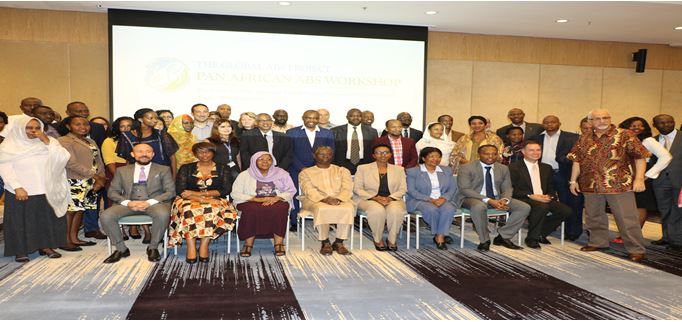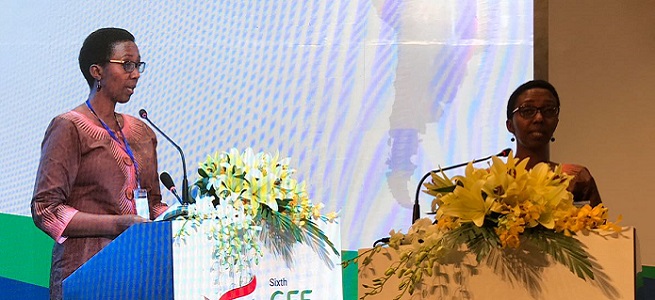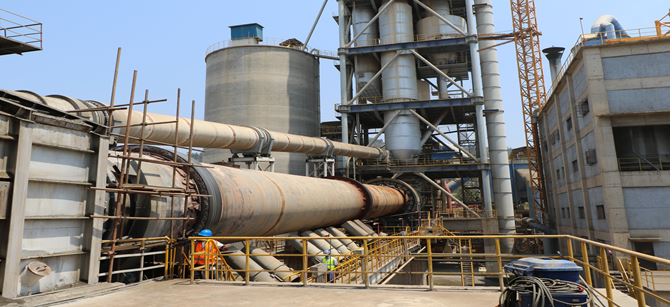
Rwanda incinerates harmful oils used in transformers
The Government of Rwanda through the Rwanda Environment Management Authority (REMA) started the incineration of Polychlorinated Biphenyls (PCBs) oil - harmful oils used in transformers – yesterday 17 August 2018 at the cement kilns of CIMERWA, a Rwandan cement manufacturer located in Rusizi District, Western Province.
The incineration of PCBs oil is part of Rwanda’s efforts to manage and phase out Persistent Organic Pollutants (POPs) including Polychlorinated Biphenyls (PCBs) which are toxic to both humans and wildlife and remain intact for many years.
The incineration initiative has been funded by the Global Environment Facility (GEF) and the United Nations Development Programme (UNDP) through the ‘Management and Disposal of Polychlorinated Biphenyls (PCBs) in Rwanda’ project. This project is managed by REMA in partnership with the Energy Utility and Corporation Ltd (EUCL).
“We are working hard to reduce and eliminate hazardous waste to protect the environment and our people. Pollutants like PCBs are very harmful to wildlife and human health and we need to reduce the risks associated,” said Eng. Coletha Ruhamya, Director General, Rwanda Environment Management Authority.
Rwanda follows Morocco to become the second country in Africa to undertake the incineration of PCBs.
Approximately 50 metric tons of PCBs contaminated oil are expected to be incinerated. The incineration of the 50 metric tons of PCBs oil which kicked off yesterday will take around 6 days to complete. The PCBs contaminated oils were collected from 96 transformers.
An inventory of transformers contaminated with PCBs in Rwanda, conducted by REMA in 2014, showed that from the 2,344 transformers in service and 182 transformers in storage, only 100 transformers are contaminated with PCBs.
Of the 100 contaminated transformers inventoried, 96 transformers contaminated with PCBs oil were drained and fully cleaned of PCBs oil. The 4 remaining transformers contaminated with PCBs will be cleaned of PCBs oil soon.
Through the GEF-UNDP funded project on ‘Management and Disposal of Polychlorinated Biphenyls (PCBs) in Rwanda’, REMA has developed technical guidelines to avoid cross contamination of PCBs oil during transformers decontamination.
1113 people from public and private institutions as well as NGOs have been trained on the harmful effects of PCBs to human health and the environment and how to avoid risks linked with PCBs oil and contaminated equipment. A technical team from REMA and other stakeholders (CIMERWA and EUCL) have been also trained on the safe drainage, decontamination and elimination of PCBs contaminated oil.
About Polychlorinated Biphenyls (PCBs)
PCBs are a type of Persistent Organic Pollutants (POPs) which are very toxic to humans and wildlife. Exposure to Polychlorinated Biphenyls (PCBs) has been demonstrated to cause environmental and health effects including cancer, as well as a variety of other adverse effects on the immune, reproductive, nervous, and endocrine systems. Due to PCBs' environmental toxicity and negative effects on human health, its production was banned by the United States Congress in 1979 and by the Stockholm Convention on Persistent Organic Pollutants (POPs) which was adopted in 2001 and entered into force in 2004.
The convention requires its parties to take measures to eliminate or reduce the release of POPs (including PCBs) into the environment. In Rwanda the main source of PCBs is transformer oil.
About Persistent Organic Pollutants (POPs)
Persistent Organic Pollutants (POPs) are organic chemical substances that are carbon-based. Currently more than 23 chemicals are listed as POPs, mainly: Polychlorinated Biphenyls/PCBs (industrial POPs), Lindane, Chlordane, Aldrin, Endrin, DDT (Pesticides POPs used in Agriculture and public health), etc.
In its efforts to manage POPs including Polychlorinated Biphenyls (PCBs), Rwanda ratified the Stockholm Convention in July 2002 and developed the National Implementation Plan (NIP) of the Stockholm Convention in 2007, which was updated in 2016 and outlines the National Actions Plan for the management of POPs in the country.
Topics
More posts
Rwanda hosts the Global Environment Facility (GEF) Eastern Africa Constituency Meeting
Kigali, 22 November, 2018, Following the 6th GEF Assembly and 54th Council Meeting held in Danang, Vietnam in June 2018, the GEF focal points of the…
Top managers of industries in Prime Economic zone and Special Economic zone were briefed on new law on Environment
Kigali, 16 November, 2018 - In view of elaborating the new law on environment, LAW N°48/2018 OF 13/08/2018 LAW ON ENVIRONMENT, Rwanda Environment…
Rwanda pilots the second phase of Standardized Crediting Framework concept
Kigali, 15 November, 2018- From 14 to 15 November, 2018, REMA and the World Bank Carbon Initiative for Development (Ci-Dev) hosted a workshop to…
Rwanda to host inaugural Africa Green Growth Forum
Rwanda will host the first ever Africa Green Growth Forum, gathering more than 1,000 investors, policy makers and financial specialists from across…
Rwanda hosts Pan African Workshop on Access and Benefit Sharing of Genetic Resources
Rwanda from 28–30 August 2018 hosts a Pan African Workshop on Access and Benefit Sharing of Genetic Resources (ABS). The workshop brings together…
Rwanda incinerates harmful oils used in transformers
The Government of Rwanda through the Rwanda Environment Management Authority (REMA) started the incineration of Polychlorinated Biphenyls (PCBs) oil -…
Rwanda statement at the 6th GEF Assembly in Da Nang, Viet Nam
STATEMENT BY HEAD OF DELEGATION FROM RWANDA - COLETHA U. RUHAMYA - DIRECTOR GENERAL OF RWANDA ENVIRONMENT MANAGEMENT AUTHORITY (REMA) AT THE 6TH…
World Environment Day: winners of environmental school competitions awarded
Rwanda Environment Management Authority (REMA) has awarded winners of this year’s environmental school competitions organized in the build up to the…
Umunsi Mpuzamahanga w’Ibidukikije: Igihe kirageze ngo tuzirikane ububi bwa plastiki mu mibereho yacu
Kuri uyu wa 05 Kamena, u Rwanda rwifatanyije n’isi yose mu kwizihiza Umunsi Mpuzamahanga w’Ibidukikije, uyu ukaba ari umwanya wo kuganira ku bibazo…

